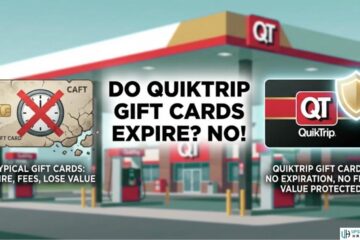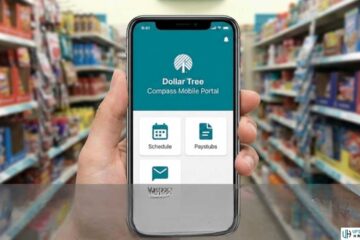Waiting to hear back after a job interview can be tough. Positive body language, like smiles and eye contact, can hint at good news. This blog will show you clear signs you will get the job after interview. Keep reading for inside tips.
Key Takeaways
- If the interview feels like a friendly chat and they use “when” instead of “if,” it’s a positive sign.
- Being introduced to other team members and discussing perks or salary suggests they see you as part of the team.
- Receiving quick replies to your follow – up, getting the interviewer’s contact info, or learning that your references have been contacted are strong indicators of interest.
Positive Indicators from the Interview

During your job interview, if the chat feels more like a friendly talk than a strict Q&A, that’s a good sign. Also, notice if the person doing the interview talks about you joining their team as something that will happen, not just might happen.
The conversation turns casual
The talk moves away from formal topics to more relaxed ones. The interviewer starts asking about your hobbies, favorite books, or weekend plans. This shift shows they see you as a person, not just a candidate.
It’s like the vibe changes from a strict job interview to chatting with someone who might be your new colleague.
They laugh more and share stories from the office. You feel less like you’re being tested and more like you’re already part of the team. This change in conversation is one of the signs that things are going well.
It means they are thinking about how you’ll fit into their work culture, which is crucial for making hiring decisions.
Interviewer uses “when” instead of “if”
An interviewer saying “when” instead of “if” is a strong sign you might get the job. This small change in words shows they see you joining their team. It means they’re already thinking about your future with them, not just considering it.
They might say things like “when you start working here” or explain tasks by starting with “you will.” This shows confidence in your fit for the role.
Getting to meet other employees usually comes next after such hints.
You’re introduced to other team members
Moving from the interviewer saying “when” instead of “if,” another good sign is meeting the team. This means you did well in your interview. They even might show you around and have you meet other workers.
This is a big positive signal.
Meeting more team members often means they see you fitting in.
Seeing how you connect with the team can tell them if you will work well together. It’s not just about your skills but also if your personality matches the team’s vibe.
Signs from the Hiring Manager

When a hiring manager talks about the good stuff like vacation days and health insurance, it’s a strong hint. If they ask how much money you want to make, it means they’re really thinking about giving you the job.
They discuss perks and benefits
Talking about compensation and extra benefits during an interview means the company sees you as a potential employee. They might discuss health insurance, paid time off, or even work-from-home options.
This chat shows they are thinking about making you part of their team.
Getting into salary talks is another good sign. The hiring manager asking what pay you expect suggests they’re considering offering you the position. They want to ensure your expectations align with what they can provide.
This step is crucial in the hiring process because it paves the way for a job offer that satisfies both sides.
You’re asked about salary expectations
Moving on from perks and benefits, getting asked about your salary expectations is a really good sign. It means the hiring team sees you as a strong candidate. They are thinking about how to fit you into their budget.
This question suggests they’re considering making you an offer.
Knowing your worth is the first step in securing a job that meets your salary expectations.
They might also talk about compensation and employee perks during this part of the interview. Discussing these topics shows they’re serious about having you join their team. They want to make sure what they offer matches what you need.
The hiring manager outlines the follow-up process
After talking about salary, the hiring manager might share what comes next. They could talk about the stages of hiring that follow. This means they see you possibly joining their team.
They might tell you when they will decide or when to expect a call. This shows they are seriously thinking about your place in the company.
They may also mention background checks or getting started with onboarding tasks. These steps mean they are interested in learning more about you. It’s a good sign if they discuss how to prepare for your first day or what documents you need.
This is them planning ahead with you in mind.
Post-Interview Signs

After your interview, keep an eye out for key signals like if the interviewer shares their email or phone number with you. If they quickly reply to your thank-you message or reach out to people who have worked with you before, those are good signs! These steps show they’re interested in learning more about you and keeping the conversation going.
Look forward to what comes next!
The interviewer gives you their contact information
Getting the interviewer’s contact details is a big deal. It shows they want to talk more after your meeting. Most times, recruiters only share their info with people they think could get the job.
This act says a lot about how they see you as an applicant. They hand over their card and number because they’re confident in what you can bring to their team.
This gesture keeps the conversation going even after you leave the room. It’s like leaving the door open for further talks or questions either of you might have. This openness is not just about being polite; it signals real interest in having you on board.
Quick response to your follow-up
If you hear back from the interviewer soon after reaching out, it’s a good sign. Quick replies show they’re interested in keeping the conversation going. They want to make sure any questions or concerns are cleared up fast.
This action tells you that they see you as a strong contender for the position.
They might even use their email or phone call to ask more about your experience or discuss next steps in the hiring process. This kind of engagement suggests they’re thinking seriously about how you’d fit with their team.
Fast feedback is like a green light signaling your journey through recruitment could be moving forward positively.
They contact your references
Hiring teams reaching out to your references is a big deal. This step usually means you’ve impressed them during your interview. It’s their way of double-checking the facts on your resume and hearing about your work ethic from others.
Think of it as the final hurdle before they make a job offer.
This move happens near the end of the hiring journey. If they’re taking time to talk with people who know you professionally, that’s a good sign. They’re seriously considering you for the position and want to ensure everything checks out before moving forward with an offer.
Conclusion
Spotting the signs you will get the job after an interview can boost your confidence. If the interviewer’s body language was positive and they said “when” instead of “if,” things look good.

A casual chat, being introduced to coworkers, or talking about pay shows they’re interested in you. Getting a quick reply after you reach out or finding out they called your references are also great signs.
Keep these indicators in mind to gauge how well your interview went!
General Facts
- Positive body language, including smiling, nodding, and making eye contact, from the interviewer can indicate a positive interview.
- The use of “when” instead of “if” by the interviewer suggests they are considering you for the role.
- Casual conversation during the interview indicates the interviewer is already satisfied with your qualifications and is getting to know you better.
- Being introduced to other team members is a strong sign that you have performed well during the interview.
- If the interviewer indicates that they like what they hear, it shows their interest in your skills and experience.
- Look for frequent use of phrases like “I was interested to learn” or “I was impressed by” from the interviewer.
- Discussing compensation, benefits, and perks is an indicator that the company is interested in hiring you.
- If the interviewer asks about your salary expectations, it’s a good sign that they want to make you an offer.
- If the interviewer brings up the next stages of the hiring process, it indicates a successful interview.
- Contacting your references post-interview is a clear sign that the interview was a success and they want to know more about you.
FAQs
What are some signs during the interview that show I might get the job?
If your interview lasts a long time, they ask about contacting references, or there's lots of casual conversation, these could be good signs. Also, pay attention to positive nonverbal cues from the interviewer.
Can how my interview was scheduled affect my chances of getting the job?
Yes! A phone interview followed by an in-person meeting can be a positive sign. It shows they're interested enough to see you face-to-face.
Does checking my LinkedIn profile mean I will get the job?
If someone from the company looks at your LinkedIn profile after your interview, it's often a sign they're considering you seriously for the position.
Should I trust my gut feeling about getting the job after an interview?
Your gut feeling combined with observing signs like talking about next steps or having relaxed conversations can give clues but remember it’s not always certain until you receive an offer.
See Also: Get Hired At Walmart: Master These Top Walmart Interview Questions










